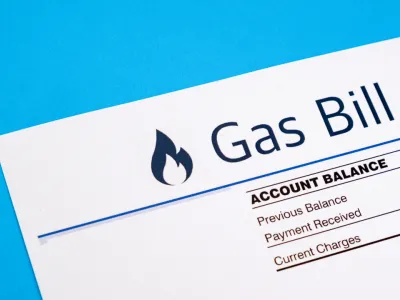Commission exempts low-income Minnesotans from natural gas price spike surcharges

Published August 11, 2021
Over President’s Day Weekend 2021, four of Minnesota’s natural gas utilities (CenterPoint, Xcel, MERC, and Great Plains) collectively incurred hundreds of millions of dollars in extraordinary costs providing natural gas to their Minnesota customers. Normally, extraordinary costs (those that exceed what utilities had budgeted for when setting rates) are passed through to customers via automatic “true-up” mechanisms. Conscious of the enormous rate impact such automatic true-ups would produce this year, the Minnesota Public Utilities Commission (Commission) opened an investigation to determine how best to protect customers while permitting utilities to recover costs lawfully incurred. The Commission held a two-day hearing on this investigation last week (August 4-5, 2021). This blog post summarizes our role in this investigation to date, the outcome of last week’s hearing, and our reaction to the hearing.
CUB’s role in the gas price spike investigation
We at CUB have been very concerned about how the February gas price spike will affect Minnesota’s natural gas consumers -- particularly now when many Minnesotans continue to struggle with economic uncertainties and hardships arising from the COVID-19 pandemic. To address our concerns, we partnered with the Energy CENTS Coalition to file four rounds of joint comments in the Commission’s investigation. In summary, we recommended that the Commission take immediate action to (1) separate extraordinary costs from more typical costs recoverable through automatic true-ups, (2) take certain actions to reduce the rate shock Minnesota’s natural gas customers will experience in the coming months when utilities seek to recover their extraordinary costs from customers, (3) prohibit utilities from recovering “financing costs” (such as interest paid on debt the utility incurs to pay bills while waiting to recover their extraordinary costs) from customers; and (4) exempt low-income and certain past due customers from having to pay extraordinary cost surcharges. We also recommended that the Commission continue to evaluate the prudence of the utilities’ actions during the February event in order to prevent utilities from collecting extraordinary costs they could and should have avoided with better planning.
Outcomes of the August 5-6, 2021 hearing
Last week, the Commission adopted all of our procedural recommendations. Most notably, the Commissioners unanimously agreed to (among other things):
- separate extraordinary cost from those passed through via automatic true-ups;
- calculate extraordinary cost surcharge amounts based on a volumetric basis (rather than a fixed surcharge) that accounts for customers’ actual energy usage last February;
- extend recovery of extraordinary costs over a 27-month period, thereby reducing the monthly increase customers will experience;
- prohibit utilities’ recovery of “financing costs” associated with the extraordinary costs; and
- Exempt low-income customers receiving energy assistance (LIHEAP) and those with bills significantly past due (those customers with bills between 60-120 days past due) from having to pay extraordinary cost surcharges.
The Commission also referred an ongoing “prudency review” to a contested case hearing. In other words, a proceeding will be heard by an administrative law judge (“ALJ”) to assess whether the utilities acted reasonably, based on information known or knowable at the time, when incurring extraordinary costs last February. Parties involved in that proceeding -- particularly the Minnesota Office of the Attorney General and the Minnesota Department of Commerce -- will recommend (and have already recommended) that certain costs were incurred imprudently and should be “disallowed,” or subtracted from the amounts passed through to consumers. Those recommended disallowances will be debated before the ALJ, and the ALJ will ultimately make a recommendation to the Commission as to whether utilities should be prohibited from recovering imprudently-incurred extraordinary costs.
Finally, the Commission required the four utilities to participate in working group discussions to identify changes the utilities can and must make to be better prepared for extreme weather or market events that could occur again in the future.
CUB’s reaction to the Commission’s Hearing
On one hand, we are very pleased with the results of the Commission’s hearing. In particular, the Commission’s decision to adopt our proposed low income/past due exemption will protect over 122,000 low-income or financially vulnerable Minnesotans from paying extraordinary cost surcharges.
On the other hand, we remain very concerned about how the February event will affect Minnesota’s natural gas consumers. To be clear, the extraordinary costs will still be recoverable from most residential customers receiving natural gas from the above four utilities. This means many Minnesotans will begin seeing an extra charge on their utility bills beginning in September or October this year, and those monthly charges will continue every month for the next 27 months.
We think it remains very important for the Commission to evaluate the prudency of the utilities’ actions during the February event. Because contested case hearings are resource-intensive and procedurally complex, CUB is still determining what our role will be in that proceeding. We certainly look forward to participating in ongoing working group discussions to help ensure utilities, the Commission, and advocacy groups like ours learn from this event and do everything we can to prevent similar events from negatively impacting gas consumers in the future.
Keep an eye on our blog for additional updates about ongoing proceedings related to the natural gas price spike event.